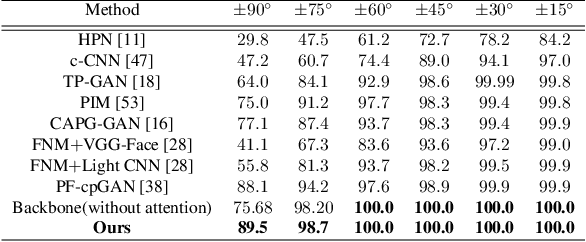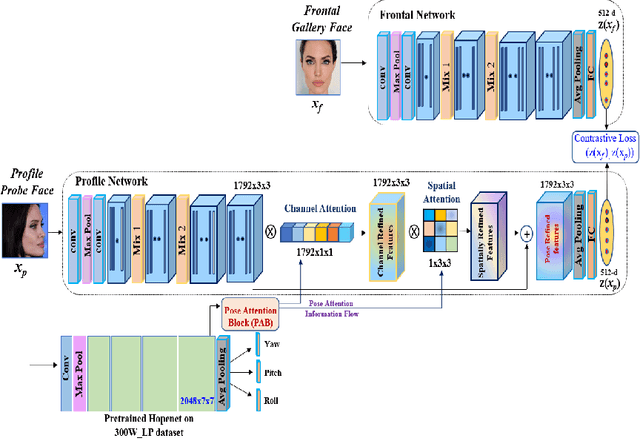Pose Attention-Guided Profile-to-Frontal Face Recognition
Paper and Code
Sep 15, 2022



In recent years, face recognition systems have achieved exceptional success due to promising advances in deep learning architectures. However, they still fail to achieve expected accuracy when matching profile images against a gallery of frontal images. Current approaches either perform pose normalization (i.e., frontalization) or disentangle pose information for face recognition. We instead propose a new approach to utilize pose as an auxiliary information via an attention mechanism. In this paper, we hypothesize that pose attended information using an attention mechanism can guide contextual and distinctive feature extraction from profile faces, which further benefits a better representation learning in an embedded domain. To achieve this, first, we design a unified coupled profile-to-frontal face recognition network. It learns the mapping from faces to a compact embedding subspace via a class-specific contrastive loss. Second, we develop a novel pose attention block (PAB) to specially guide the pose-agnostic feature extraction from profile faces. To be more specific, PAB is designed to explicitly help the network to focus on important features along both channel and spatial dimension while learning discriminative yet pose invariant features in an embedding subspace. To validate the effectiveness of our proposed method, we conduct experiments on both controlled and in the wild benchmarks including Multi-PIE, CFP, IJBC, and show superiority over the state of the arts.
 Add to Chrome
Add to Chrome Add to Firefox
Add to Firefox Add to Edge
Add to Edge